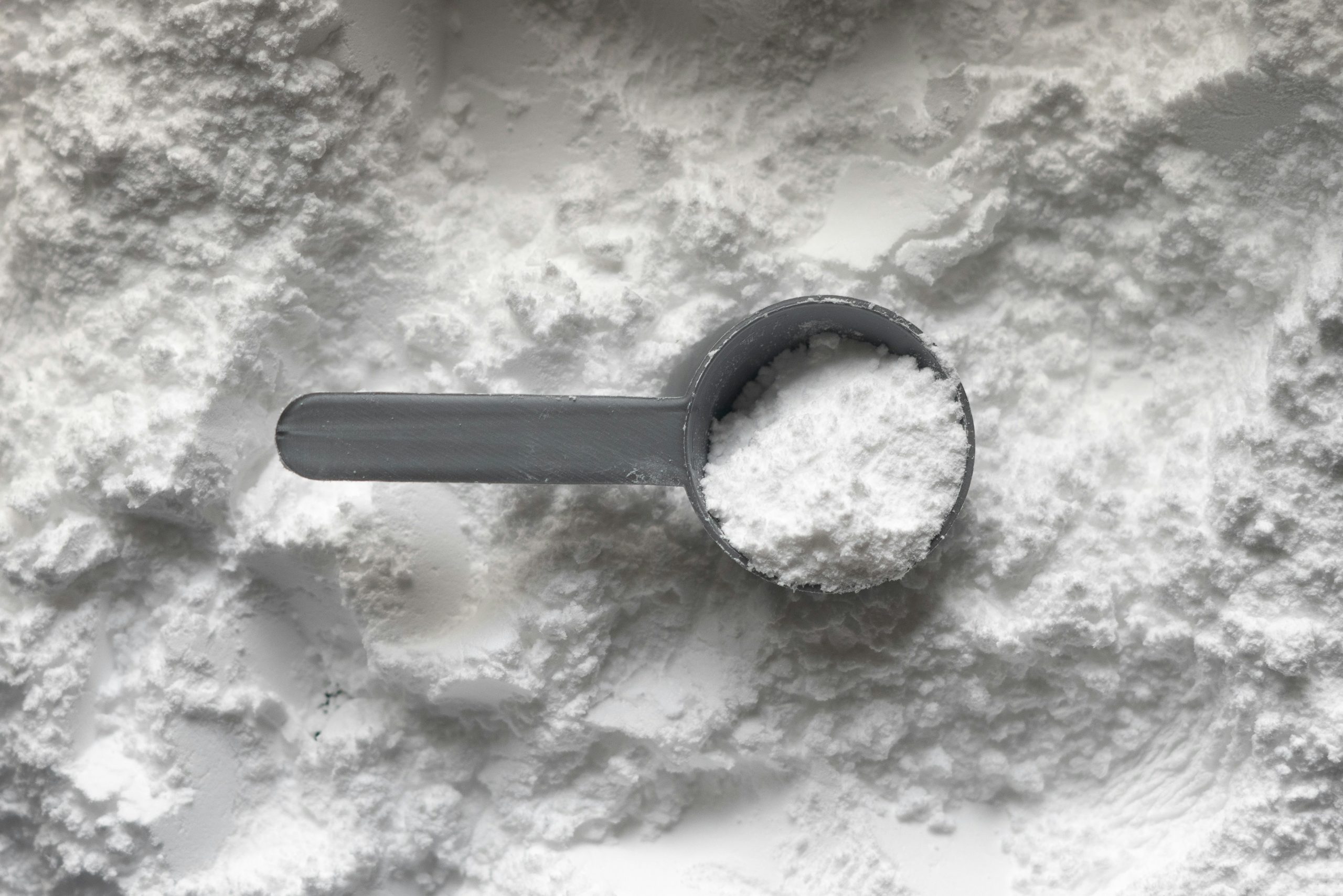
What is Creatine?
Table of Contents
Creatine is a naturally occurring compound found primarily in the muscles, brain, and to a lesser extent in other tissues throughout the body. It is synthesized by the liver, kidneys, and pancreas using three amino acids: arginine, glycine, and methionine. Once produced, creatine is stored mainly in skeletal muscle cells, where it plays a critical role in supplying energy for cellular functions—especially during activities that require short bursts of intense effort, such as sprinting, jumping, or weightlifting.
Approximately 95% of the body’s creatine is stored in muscle tissue in the form of phosphocreatine. This stored form acts as a rapid energy reserve by helping regenerate adenosine triphosphate (ATP), which is the primary energy currency of the cell. During high-intensity exercise, ATP gets used up quickly, and phosphocreatine steps in to restore ATP levels, allowing the muscles to continue working at a high output for a bit longer.
Creatine is not only valuable for athletes or those engaged in physical training—it also plays a role in everyday energy metabolism and may support cognitive function. Research suggests that creatine supplementation may improve mental performance under stress or fatigue, possibly by enhancing brain energy availability. Although more studies are needed to fully understand these effects, preliminary findings are promising, especially for older adults or individuals with reduced dietary intake.
From a dietary perspective, creatine is found in animal-based foods like red meat and fish, but the amounts are relatively small. This makes supplementation a convenient and effective way to increase muscle creatine levels, particularly for vegetarians and vegans who may get little to none from food. Creatine monohydrate is the most researched and widely used form, known for its safety, affordability, and effectiveness.
Overall, creatine is one of the most well-studied supplements in sports and exercise science. It has a strong safety profile, with numerous studies supporting its benefits in improving strength, power output, muscle mass, and recovery. While it is not a miracle substance, it remains a trusted and evidence-backed tool for enhancing performance and supporting muscular health when combined with consistent training and proper nutrition.
Science-Based Knowledge on Creatine Supplementation
Proven Benefits of Creatine
- Increased Muscle Strength and Power:
Numerous studies show creatine supplementation boosts muscle strength, power output, and overall athletic performance, especially when combined with resistance training478. This effect is observed in both trained and untrained individuals, but is most pronounced in healthy young adults4. - Muscle Mass and Hypertrophy:
While creatine itself does not directly build muscle, it enhances the effects of resistance training, leading to greater gains in muscle mass and lean body tissue47. - Enhanced Recovery:
Creatine supplementation can speed up muscle recovery after intense exercise, likely due to its role in increasing muscle glycogen storage and reducing muscle damage and soreness16. - Cognitive and Mental Health Benefits:
Emerging research suggests creatine may improve cognitive function, reduce mental fatigue, and support mood, particularly in individuals under stress or with depression53. Some studies also indicate potential benefits for memory and brain fog53. - Injury Prevention:
Athletes supplementing with creatine report fewer muscle injuries, cramps, and strains compared to non-users. Long-term use (up to three years) has not been shown to increase injury risk or cause adverse health effects in healthy individuals26. - Other Potential Health Benefits:
There is preliminary evidence that creatine may help reduce cancer risk, alleviate menopause symptoms, and provide antioxidant effects, though more research is needed in these areas(5).
Recommended Dosage and Supplementation Protocol
- Loading Phase (Optional):
20 grams per day (split into four 5-gram doses) for 5–7 days can rapidly saturate muscle creatine stores(46). - Maintenance Phase:
3–5 grams per day is sufficient to maintain elevated muscle creatine levels(67). - Long-Term Use:
Creatine is safe for extended periods (months to years) when taken at recommended dosages(26).
Safety and Side Effects
- General Safety:
Creatine is one of the most extensively studied and safest sports supplements available. At recommended doses, it is well tolerated with no significant adverse effects in healthy individuals(628). - Common Myths Debunked:
- Kidney Damage: No evidence supports the claim that creatine harms kidney function in healthy individuals(26).
- Dehydration and Cramping: Studies show creatine users may actually experience fewer cramps and dehydration issues than non-users(26).
- Water Retention: Some initial water weight gain may occur due to increased muscle creatine storage, but this is not harmful(6).
- Hair Loss/Baldness: There is no robust scientific evidence linking creatine to hair loss(6).
- Special Populations:
Creatine is generally safe for older adults and may help offset age-related muscle loss (sarcopenia)(16). Vegans and vegetarians may benefit more due to lower baseline muscle creatine levels(5).
Optimizing Creatine Supplementation
- Timing:
Creatine can be taken at any time, but some evidence suggests post-workout consumption with carbohydrates or protein may enhance muscle uptake(6). - Form:
Creatine monohydrate is the most researched and cost-effective form. Other forms have not shown superior efficacy(68.) - Hydration:
Maintain adequate hydration, as creatine draws water into muscle cells(6).
References to Scientific Sources
- [Harvard Health: Creatine Potential Benefits and Risks]1
- [Peer-reviewed review on safety and efficacy]2
- [University of Essex: Research on creatine and cognition]3
- [Scoping review of muscle growth and creatine]4
- [BBC Future: Health benefits of creatine]5
- [Comprehensive review of creatine myths and facts]6
- [Cleveland Clinic: Creatine benefits and safety]7
- [International Society of Sports Nutrition position stand]
